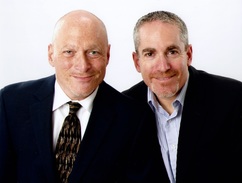 Which one is the coach? Which one is the coach? In a coaching social media group, a member recently posted the following: “If you have the perfect expertise for your client’s challenges and see an easy solution, do you share that solution with your client?” Nice trap, I thought. She’s baiting the consultants—masquerading in coach’s clothing—to reveal themselves, and reveal they did. “It would be okay to discuss a solution, as long as it was effective.” “In the spirit of direct communication, it can be done.” “Yes, a coach can definitely share resources if they are helpful.” Doesn’t taking this direction make you a consultant, not a coach? Consultants share expert knowledge. They are paid to provide answers, whereas coaches challenge clients to find their own solutions, using artful facilitation and empowerment. Coaching is founded on the belief that clients have the answers they need and the ability to find them without having them handed over on a silver platter. Discovering solutions is empowering. Hand-delivered solutions are efficient, and often desired, but not empowering. In The New Yorker article “Personal best: Top athletes and singers have coaches. Should you?” (October 3, 2011), Dr. Atul Gawande highlights how coaching can enhance the performance of various professionals, including surgeons and teachers, often with better results than technological advances. Unfortunately, the coaches he describes are also trainers.
These professionals all practice powerful questioning and active listening, giving the initial impression that they are true coaches. However, the master teachers arm their coachees in advance with customized classroom strategies, for the explicit purpose of enhancing instructor performance. In addition, Gawande’s surgical “coach” directly observes his procedures and delivers highly technical, post-operative feedback to help the author optimize his technique and judgment for future surgeries. These practices of educating, evaluating, offering strategy, providing mechanical feedback, and refining skills are better labeled as training, not coaching. Trainers can coach, but if they incorporate training in their work, then it’s important for them to identify as trainers, not as coaches. It’s hard enough for coaching consumers to have a clear expectation of the service they will receive, since the coaching profession is relatively young, and since people often define coaching very differently, despite ICF’s clearly stated core competencies. True coaches, who want to empower clients through collaboration and facilitation of their own choices, keep training and consulting practices well outside of their coaching role. They know that as a coach, they can only wear one hat, and the moment they try to expand their role with a client, they are no longer a coach, but a consultant or a trainer. Besides maintaining their own role clarity, true coaches also need to call out the consultants in coach’s clothing. Consultants and trainers who identify as coaches complicate the task of clarifying and marketing the coaching profession, hindering clients from developing realistic expectations for services, and ultimately from enjoying a satisfying and productive experience.
0 Comments
Leave a Reply. |
The Solutions Mine BlogAll articles written by Jason Sackett, PCC, LCSW, CEAP. Archives
July 2021
Categories |
Services |
Call310.251.2885
|
